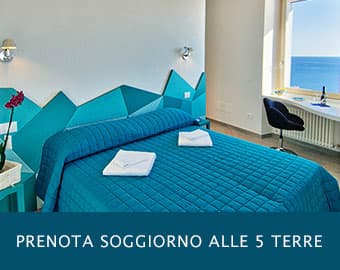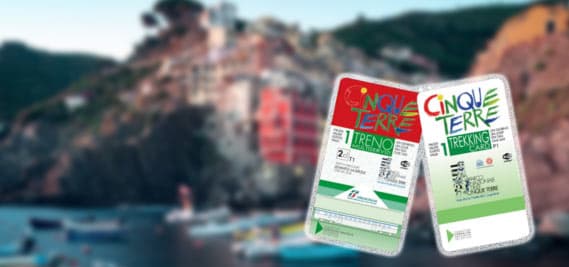Recommended
by CinqueTerre.com
Festival of the Mind in Sarzana, the XVI edition
The Festival of the Mind is the first European festival dedicated to creativity and the birth of ideas promoted by Carispezia Foundation and from Municipality of Sarzana with the direction of Benedetta Marietti . The XVI edition will be held by August 30 al 1 September , in Sarzana.
40 meetings in the program plus 20 events created specifically for children and teens and 6 educational workshops in the section curated by Francesca Gianfranchi , a real festival at the festival.
One hundred Italian and international guests in three days will investigate the changes, the creative ferment and the hopes of society through meetings, readings, shows, workshops and moments of cultural study, addressing, with a clear and understandable language, to the broad and intergenerational public that has always been the true soul of the festival.
2019 theme: the future .
"The concept of" future "has always been important and necessary for the human mind - explains Benedetta Marietti - but it acquires particular significance in an era like ours, full of social changes, technological transformations and uncertainties that weigh on the present. With the usual multidisciplinary approach, the festival examines the possible scenarios that await us in the scientific and humanistic fields, without forgetting that to look to the future we need to know the past. And with the firm conviction that to imagine the future we want it is necessary to create and invent a new reality starting today. I hope that the festival, through the competent and passionate voices of the speakers, will succeed in conveying the conviction that all of us can and must become "inventors of the future" ".
500 volunteers , of which most students who with passion and generosity contribute to creating that unique festive atmosphere that reigns in the historic center of Sarzana during the festival. Testimony of the strong bond that the event has created with the territory and the desire of many young people to get involved.
THE PROGRAM
Scientists, humanists and artists will explore 40 meetings the future theme , the focus of this edition.
The inaugural lesson of Amalia Ercoli Finzi entitled "Space exploration: today, tomorrow and ... the day after tomorrow". The aerospace engineer, who has been dealing with space flight dynamics and space mission planning for over twenty-five years, has in fact contributed to the creation of satellites and probes for planetary exploration and held positions at the Italian Space Agency, the Agency European Space Agency and the International Astronautical Federation. Gold Medal of the President of the Republic for scientific merits, Ercoli Finzi recalls that, to reveal the secrets of worlds so far away from being considered unattainable up to now, they need an exasperated technology, long planning and realization times, huge funding, but above all visionary minds. It is essential that the future choices on where and when to go are the result of a collective effort, which does not see only the industrially advanced countries as protagonists.
THE FUTURE OF LITERATURE, LANGUAGE AND ARTS
Masha Gessen , one of the most brilliant journalists on the international scene, signed by New Yorker and winner of the National Book Award 2017, tells, in a dialogue with the writer Wlodek Goldkorn , the new Russia, a nation that with a surprising reversal has gone from being the lighthouse of the left international model to become the exemplary model, in America and in Europe, of conservative thought.
How can you have a love story during a conflict? How to escape from bombs when you find yourself orphaned? How to endure the torture of soldiers? The Palestinian poet and writer Mazen Maarouf , on stage with the writer Matteo Nucci , reveals how to merge the daily domestic life with the ruthless unreality of war violence to keep afloat, to resist in the only possible way: dreaming, joking, imagining the future.
From Palestine to Israel: the Israeli writer Dorit Rabinyan , in dialogue with the writer Alessandro Zaccuri , reflects on the great obstacles, including interreligious dialogue, which stand in the way of achieving political stability and the interruption of the fratricidal war between Israel and Palestine. Is peaceful coexistence possible between peoples at war for generations? What are the roads currently open to tomorrow?
Today, technology is constantly changing: internet and social media profoundly change our ways of communicating and thinking, with a speed that history has never known. What does this mean for reading? Is it really at risk of extinction or will it take new forms? Lina Bolzoni , writer and member of the Accademia dei Lincei and British Academy, remembers that - from Petrarca to Machiavelli, from Tasso in Montaigne - reading is a personal encounter, a dialogue with authors beyond the barriers of time.
The linguist Andrea Moro shows that the rules of language are not arbitrary conventions, but are related to the neurobiological architecture of the brain: not there are therefore better languages than others, musical languages or tuneful languages, nor does a human being see the world differently depending on the language he speaks, as if it were a filter for the senses and the reasoning.
Poetry is the future of the word, because it is a word that always looks to the future. Two of the most recognizable voices of current Italian literature in verse converse around this statement, Antonella Anedda and Alessandro Fo , prompted by the questions of the writer Alessandro Zaccuri .
Contemporary artistic production has become increasingly polarized in a relationship between the city and the periphery. But in the light of recent environmental emergencies and new digital ubiquity, how do artistic interventions and practices diversify? The art historian Ilaria Bonacossa and the artist Massimo Bartolini investigate the ongoing transformations of the current cultural and productive landscape.
Achilles and Odysseus represent, according to the ancients, two opposing character models: the first spontaneous and direct, the second deceitful, prudent, with tortuous thoughts. Achilles is constantly thrown into the present, while Odysseus never stops planning for the future, observes the writer Matteo Nucci .
The Atelier dell'Errore , a visual and performing arts laboratory designed by the artist Luca Santiago Mora for the children's neuropsychiatry departments in Reggio Emilia and Bergamo, also participates in the festival years proved to be a valid complement to the clinical activity. Mora accompanies some of the kids who tell about the animals of the future, the prototypes of a zoology that we won't have time to know but that, inexorably, are already on their way, towards Terra.
THE FUTURE OF SCIENCE
Artificial Intelligence, even if already present in our lives, raises some legitimate concerns: the use of data, possible discrimination, alignment with human values, transparency, the need to understand how AI takes decisions, the impact on the world of work. Francesca Rossi , IBM's global leader in Artificial Intelligence, says it is our responsibility to plan the future we want by identifying for AI's ethical guidelines that guide it in beneficial directions for individuals, society, and the environment.
The scientist Barbara Mazzolai , director of the IIT Center for MicroBioRobotics in Pontedera and in the international ranking of the most brilliant women in robotics, invented the plantoid, first robot inspired by the world of plants that can be used in many areas, from space exploration to environmental monitoring. In Sarzana he tells why, to be able to imagine an eco-sustainable future, it is necessary that biology and technology proceed together to investigate the mysteries of nature.
What we eat affects our health: science is certain of this. But which food model is most effective for staying healthy and living long is a topic of discussion and often confusion; the chemist Dario Bressanini and the nutritionist Lucilla Titta of the European Institute of Oncology in Milan warns against the fads of food fashions, which offer simple solutions, but do not rest on solid scientific foundations.
The neuropsychiatrist and neuroscientist Edward Bullmore from the University of Cambridge explains the connection between inflammation and depression, demonstrating how and why the inflammation can be among the causes of depression. What known risk factors, such as social stress, can cause inflammation? In what future perspective will new anti-inflammatory medicines be used to treat depression?
The idea of evil has distant origins, has been integrated with the history of man on Earth, but today, he observes Valter Tucci , director of the genetics laboratory and epigenetic of IIT behavior, we have the tools to treat evil as a biological phenomenon. We can identify specific portions of DNA that influence our worst actions: knowing behavioral biology is a priority in the future of our species.
Now that all the peaks have been climbed and the poles explored, what new goals and what challenges await the pioneers of the future? The Swedish mathematics, physics and glaciologist answer this question Monica Kristensen , one of the most famous North European polar explorers and first woman to receive the gold medal of the Royal Geographical Society. Today there are mysteries to be solved - such as the reconstruction of the tragic fate of the great polar hero Roald Amundsen, who disappeared in an attempt to find the crew of the Italy airship - entire areas below the oceans yet to be explored and the Space to be investigated, with hope to find other life forms: a dream destined for future explorers.
"In search of immortality" is the title of the meeting with the writer, photographer and director Alberto Giuliani , who accompanies the public on a journey into the future, to the discovery of the science that hopes to overcome death: from NASA astronauts who simulate life on Mars to genomic research in China, from human cryopreservation and cloning laboratories to humanoid robot fathers.
THE FUTURE OF THE ENVIRONMENT
Global warming, deforestation, wild urbanization and the indiscriminate exploitation of resources, fueled by our current development and consumption patterns, have already reduced the biodiversity of a third. The philosopher of science Telmo Pievani launches a challenge: try to imagine what the Earth would be like without the pervasive presence of man, to rediscover awareness of our fragility.
Fragments of Extinction is a project by the interdisciplinary artist, composer and sound engineer David Monacchi , who is conducting research on the heritage of the sounds of primary equatorial forests. It collects recordings that return, fixing it over time, the sound language of a planet that rolls towards the sixth extinction, to increase public ecological awareness and hope to save as many ecosystems as possible. The meeting is completed by the screening of the film of Monacchi
Dusk Chorus .
Throughout its history, the climate of our planet has gone through great changes, alternating global glaciations with much warmer periods, while maintaining a substantial stability that has allowed the presence of life for at least three and a half billion years. What changes have occurred in the past and how do they affect the natural environment and society? And above all, what kind of climate do we expect in the future? On the stage of the festival, to propose solutions to these pressing questions, rooms Antonello Provenzale , director of the Institute of Geosciences and Georesources of the CNR.
A few decades ago the future was represented by plastic, which quickly replaced traditional materials and contributed decisively to create new markets, revolutionizing the way we live and consume. Today, however, we are all concerned about environmental problems related to its production, its use and its disposal: can bioplastics be an effective solution for our future? The chemist Marco Ortenzi and the biologist Marco Parolini are compared on the subject.
In recent decades, trends have been observed such as the abandonment of millions of hectares of rural areas, problems of pollution and global warming, poor quality and quantity of food resources. It is therefore necessary, explains the president of the Scientific Committee of the FAO World Program on Agricultural Heritage Mauro Agnoletti , a new vision that achieves a balance between urban and rural areas, also for cope with population growth. Italy can play an important role by proposing its culture in terms of the quality of agri-food products and the landscape and environmental heritage.
THE FUTURE OF THE COMPANY AND THE INDIVIDUAL
The Festival of the Mind investigates the most current questions of the present and the future: we could not miss a reflection on the over 70 million refugees and displaced people, who often move along with economic migrants along routes controlled by traffickers or through conflict zones . Poverty, inequalities and climate change make the situation even more complex. Filippo Grandi , United Nations High Commissioner for Refugees since 2016, answers the most pressing questions: it is possible to offer solutions to these phenomena in a concrete, organized and respectful way of international law? Is it possible to talk about refugees without the speech being exploited by politics? How to respond to the forced exodus of millions of people? Does solidarity still exist?
Exactly thirty years ago the Berlin Wall fell and, on its rubble, the "end of history" was naively celebrated, with the triumph of liberal democracies and capitalism, according to a progress considered linear and without contradictions. But now we seem to lean on a new break in the story, observes the director of Censis Massimiliano Valerii . When history gets back on the road it echoes the clash of weapons: how will we be in the future, in thirty years?
Bertrand Badré , which was managing director of the World Bank and World Bank Group Chief , claims that finance is not an enemy because it is not in itself neither good nor bad. It is a tool, the most powerful of the mechanical forces that when it goes the wrong way produces ruinous results but can benefit everyone if controlled and managed responsibly.
The sociologist Stefano Laffi explains how to help a generation rewrite the future. Speaking with pessimism about the crisis provokes fear, disenchantment and cynicism in young people; taking refuge in the celebration of ancient glories, on the other hand, serves no purpose at a concrete level. What to do? It is necessary to break the blackmail of the present, to learn to imagine, to exercise the possible instead of the existing one.
The architect and engineer Carlo Ratti - considered by Wired one of the 50 people who will change the world, co-chairman of the World Economic Forum Global Future Council on Cities and Urbanization and special advisor at the European Commission on digital and smart cities - explains today's great revolution in architecture and of design, which sees an increasingly affirmed participatory and collaborative design model with ideas developed from below, rather than imposed from above.
Love resists time and would never die. But isn't the love that can last a love impossible? The psychoanalyst Massimo Recalcati enters the labyrinth of love life and investigates the miracle of love, the most mysterious feeling of all.
From modern religious wars to current fundamentalist regurgitations, dialogue between faiths has always been fraught with difficulties, recalls the philosopher of religion Roberto Celada Ballanti . Today multiculturalism imposes relationships between ethnic groups, visions of the world and religions, determining comparisons - which often become clashes - and globalization redesigns the planetary structures: we need a dialogic paradigm that goes beyond the concept of tolerance, inadequate to face the challenges of the third millennium.
The epistemologist Luigina Mortari emphasizes how, with coming to the world, we are called to the ontological responsibility of taking care of life. Since human beings are not given sovereignty over their experience but are always dependent on others, taking life to heart can only be brought up to date in taking care of yourself, others and the world.
TRILOGY
The three appointments with the historian Alessandro Barbero are highly anticipated, as it closes each of the festival evenings with its lectures in Piazza Matteotti. The cycle this year is dedicated to popular uprisings in the Middle Ages, which changed the course of history. On Friday we talk about the Jacques , the peasants of the Île-de-France, who, in the mid-1300s, due to the continuous defeats that the French nobles reported in the war of the One hundred years, they rebelled against the duty to keep them with their work. Saturday is the turn of the Florentine Ciompi, who in 1378 occupied the city squares to reaffirm their right to be directly involved in the city government. It closes on Sunday with the revolt of the English peasants of 1381, the last to be freed, in Europe, from serfdom.
EVENING EVENTS
There is no invention that is not also the result of the visions that others have had before us: from Magellan to Mozart, from Gabriel García Márquez to Joseph Conrad, from Albert Einstein to Jimi Hendrix, every new creation is the complex product of the intuitions that preceded it. Is it possible to find a curve that connects those points and indicates the trajectory of the future? They answer this question, in a special meeting designed for the festival, Lorenzo Jovanotti and Paolo Giordano .
The actor Umberto Orsini , who has been on the stage for sixty years and has worked with Fellini, Visconti, Zeffirelli and Ronconi, always thinks of theater as a an eternal present, like a future that is built daring. This is explained in the dialogue with the writer Paolo Di Paolo , while he retraces his career and thinks about how the future is created on stage: in the choice of texts, in the interpretation , in dialogue with the audience and in the construction of the public.
A preview for the audience of the Festival della Mente, the director Raphael Tobia Vogel brings Marjorie Prime , a text that explores the relationship between memory and identity, written by the playwright Jordan Harrison - finalist at the 2015 Pulitzer Prize - and produced by the Teatro Franco Parenti. If there were among us the Prime , holograms of loved ones who passed away, would we be able to relate to them as if they were the original? Can artificial intelligence satisfy our clearest needs and our most intimate desires and be used to defeat loneliness or help the human being to know each other better?
If we had the opportunity, how would we decide to reconstruct our past and what would we decide to forget? On stage the actors Ivana Monti , Francesco Sferrazza Pope , Elena Lietti and Pietro Micci .
The Bandakadabra , fanciful formation of wind and percussion, engages in a comedy-teatral-musical show with vaguely surreal and Dadaist tones, ranging from western atmospheres and from the soundtracks of Ennio Morricone to the Beatles songs, becoming an opportunity to ironically reflect on the toxicity of smartphones and on the unfortunate love life of musicians of "failure".
Music, theater and literature live on time and time, but know how to overturn their perception.
Beatrice Venezi , one of the youngest conductors in Europe, meets the actor Gioele Dix : together with the Soloists of Milano Classica, compare their most beloved artists and try to imagine a future for their profession.
Two sound explorers, the improvising pianist and composer Cesare Picco and the musician and dj Alessio Bertallot give life, on stage, to a special journey through the iconic tracks of dj culture, together with the evocative power of the piano, to create a kaleidoscopic new world of sounds.
Polar exploration is the theme of the meeting with the historian Paolo Colombo and the artist Michele Tranquillini , who retrace the story of Ernest Henry Shackleton and his Antarctic crossover venture. The words of Colombo and the watercolors designed by Tranquillini bring this adventure to life and answer an important question: what does it mean to be a hero?
Tickets: free inaugural lecture; daytime events and trilogy (meetings n. 6, 24, 40) € 4.00;
evening events, in-depth Mente and didactics Mente € 8,00.
Information and pre-sales (from 17 July): www.festivaldellamente.it
Travel
with Ease
The train, surely the best means of travel to visit the Cinque Terre and be enchanted by the beauty of the Ligurian sea. From March 16th the 5 Terre Express train is in service to travel comfortably between La Spezia Centrale, Riomaggiore, Manarola, Corniglia, Vernazza, Monterosso and Levanto with a single single fare ticket, taking advantage of the offer of 100 trains a day, 7 days a week, every 15 minutes







